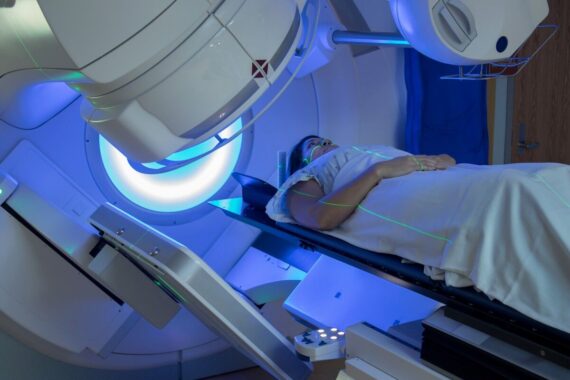Cancer waiting times ‘at their worst recorded level’

NHS England will not meet its target of treating 85% of cancer patients within 62 days of an urgent GP referral, a group of MPs has warned.
In a new report by the Public Accounts Committee, MPs said that cancer waiting times are ‘at their worst recorded level’ and that NHS England is unlikely meet its first cancer recovery target.
In February last year, the organisation published a plan to recover elective and cancer care over three years, setting a target that the weekly count of patients waiting over 62 days would recover to the pre-pandemic level by March this year.
But the new report said that only 62% of cancer patients were treated within 62 days of their urgent referral by a GP, when performance should be 85%.
The committee added that waiting times for cancer treatment are ‘especially worrying’, as in the first five months of the recovery period the proportion of people receiving timely cancer treatment has decreased.
The report said: ‘It is now clear that the target to reduce the number of people waiting for more than 62 days following an urgent GP referral to the pre-pandemic level will not be met by March 2023.
‘It is also clear that, for elective care, the planned route to increasing activity to 129% of pre-pandemic levels by 2024–25 is unachievable. Being off track means more patients suffering the unacceptable consequences of waiting too long.
‘It is unacceptable that 8,100 people waited over 104 days in the first five months of 2022–23. As a matter of urgency, the Department of Health and Social Care and NHS England should do whatever is required to bring cancer treatment back to an acceptable standard.’
The committee recommended that NHS England should be able to treat 85% of people with cancer within 62 days of an urgent GP referral and said that no one should ever have to wait more than 104 days for cancer treatment.
Dame Meg Hillier MP, who chairs the committee, said: ‘Despite a significant cash injection meant to begin to help the recovery from the pandemic, the NHS is in full blown crisis and all the metrics are going in the wrong direction.
‘On the evidence we have received the NHS will not achieve the targets in its recovery plan, and that means health, longevity and quality of life indicators will continue to go backwards for the people of this country. That is simply shameful, and totally unacceptable in a nation as wealthy as ours.’
Ms Hillier said that NHS England must ‘lift its sights and refocus’ on its strategic duty to offer direction to the whole NHS.
She added: ‘This means difficult trade-offs to address historical inequalities between areas, to reconstitute a depleted, exhausted workforce that is on its knees, and to rebuild a crumbling physical estate that is in dangerous condition in many places.
‘We do not expect the NHS to achieve the significant and ambitious targets of its current recovery plan, but it must now step up and show that leadership for a realistic way forward, with targets that have patients seeing the real improvements.’
MPs also pointed out that NHS England made ‘unrealistic assumptions’ about the first year of recovery, including that there would be low levels of Covid and minimal adverse effects from winter pressures, and expressed ‘serious doubts’ that the wider NHS recovery plan will be achieved to time.
They also said that the NHS is ‘still not planning properly’ for the staffing and other resources it needs to deliver additional diagnostic and treatment capacity’
The committee said NHS England must act now on two areas that need effective planning to enable recovery:
- The first is to increase the capacity of adult social care so that the flow through hospitals improves.
- The second is to finally get the years overdue strategy in place to create a productive healthcare workforce of the right size. This requires clarity and reality about how long that will take to achieve through domestic training.
Visit Pulse Reference for details on 140 symptoms, including easily searchable symptoms and categories, offering you a free platform to check symptoms and receive potential diagnoses during consultations.










